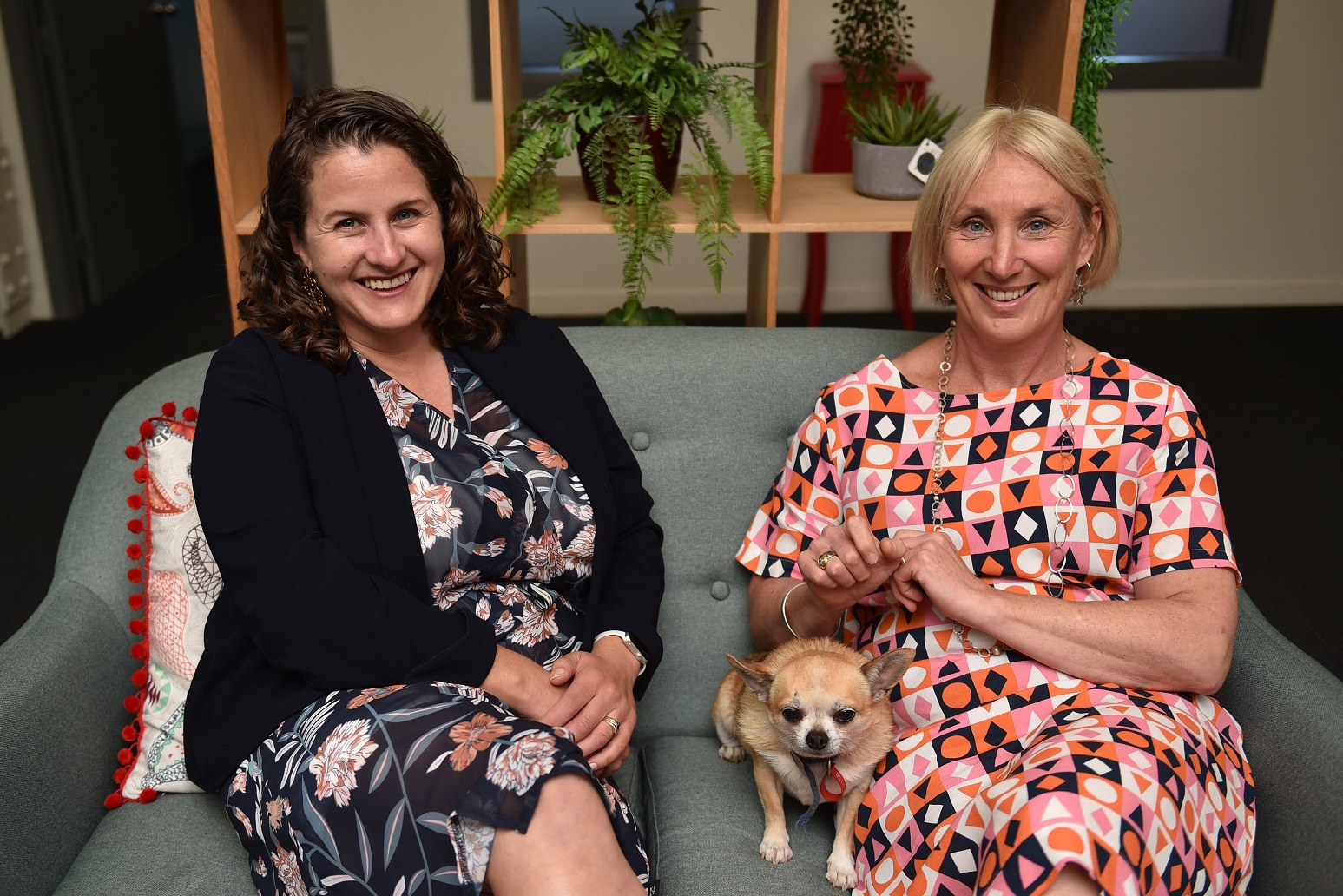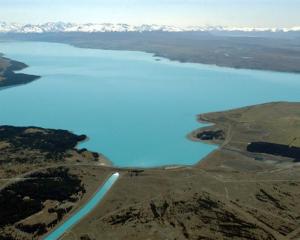
Over the past decade, Marks & Worth has fielded many calls asking to speak to Mr Marks or Mr Worth.
Neither exist; in fact, there are no men at the Dunedin law firm, unless you count pint-sized Pedro, the resident chihuahua who has an air of indifference and an uncanny knack of being a doggy diversion during difficult discussions.
When Sally Peart took over the firm and rebranded it, she came up with a "completely made up" name, a play on words reflecting her intellectual property (IP) specialisation.
It was a deliberate move; at that stage, it was only her and another staff member and she wanted to prepare for growth, rather than look like a small firm. Instead of having her own name attached to it, she wanted to be able to bring others into the firm — "it wasn’t just linked to me" — so they would also feel a sense of belonging. And finally, it was a modern approach and that was something that reflected Marks & Worth’s values.
Marks & Worth, which celebrated its 10th anniversary earlier this week — it officially happened last year but Covid-19 meant it was not the best time to host a gathering — now boasted a team of 11.
There were five lawyers, including Ms Peart and partner Stephanie Pettigrew, three legal executives, a practice manager and two support staff, plus ever-present Pedro who hitched a ride in from the Otago Peninsula in a basket on Ms Peart’s bicycle.
An all-female crew was not something that was ever intentional, nor did it reflect the firm’s client base. Rather, it was about recruiting people that were the best fit and that shared their values, Ms Peart said
Growth had been organic and she was proud of what the firm had achieved over the last decade; it had clients throughout New Zealand and also overseas.
For her, it was about endeavouring to do what it did sustainably, both in human terms as well as financial.
"I don’t apologise for running a successful business," she said.
Marks & Worth "fell out of" Mitchell Mackersy, a firm of which Ms Peart was a partner. When Ron Mackersy moved to Queenstown, it was decided she would take over the Dunedin office.
She had worked with Mrs Pettigrew at Anderson Lloyd in the early 2000s and the pair, who remained good friends, shared similar values. About eight years ago, Mrs Pettigrew joined the firm.
Those values were that clients came first and relationships mattered — whether that was with clients or colleagues — along with traditional lawyer traits of honesty and integrity.
Having a flexible workplace was also important; they were both working mothers and had always been open to staff "having lives".
"And family is another really important value for us — we don’t want to sacrifice our families or our staffs’ [families]," Mrs Pettigrew said.
She joined the firm the week her youngest child turned 1. She had still not worked full-time — she gradually increased her hours and was now sitting at 0.9.
Ms Peart, who had always been full-time, said it was quite likely she would decrease some hours as she got older. It was nice to have a structure that was flexible for people at different stages in life and who wanted to do different things.
Mrs Pettigrew was deputy chairwoman of Presbyterian Support Otago and on the board of proprietors at John McGlashan College, while Ms Peart was chairwoman of the Predator Free Dunedin Trust and former co-chairwoman of iD Fashion. Marks & Worth supported various community organisations and staff were encouraged to have community involvement.
Both women grew up in Dunedin. None of Ms Peart’s family had been to university — her mother did after she graduated — and she had never stepped in a law firm before she got her first job.
At school, she loved debating and writing, and — in her "very limited sphere"— law seemed to be a good fit. Her first job was in a big law firm in Wellington and she admitted she had "total imposter syndrome".
Growing up, Mrs Pettigrew did not know any lawyers. She did well in history, English and debating at school and was intent on a languages degree when her school principal encouraged her to do a double degree. Thinking law would go well with an arts degree, she later realised that being a lawyer was something she wanted to do.
The pair both felt very privileged to have had a great Dunedin education; they believed their background contributed to them being very approachable and also not entitled.
Ms Peart was an intellectual property law specialist, holding a masters degree in the subject from the University of London. Her interest in the topic came because it was creative.
"It’s working positively with people to develop new things, new businesses. It fits in really well with a broader range of commercial work [and] I just find it really exciting," she said.
Mrs Pettigrew was a relationship property specialist who was now moving into collaborative resolution to resolve disputes. The practice was a recognised method of resolving disputes out of the Family Court through a series of round table meetings.
It was something that a small group in Dunedin saw the benefit in.
"People come out of separations with some dignity and a working relationship still intact", she said.
The firm also worked with Agreeable, an online platform offering dispute resolution. Clients created their own agreement online and were then referred to lawyers who met them via video conferencing.
Like many other sectors, staffing was a big issue at present, although Marks & Worth had a full quota. It was also about getting the right people to ensure that the team "gelled", Ms Peart said.
The firm had good relationships with other smaller firms in Dunedin and was also part of a network of law firms nationally called Law Plus, which she was on the board of. That provided access to new ideas and new ways of practising, she said.
When Covid-19 hit, it was quite difficult as the firm was very much an in-office team and it did not have remote workers. It had to "pivot really quickly" to invest in IT to make that happen. But after the initial shock, people adjusted, Ms Peart said.
There were also initial concerns about what would happen to the business, but people still needed a lawyer, Mrs Pettigrew added and, anecdotally, she had seen an increase in separations.
In her own IP work, Ms Peart said people had time on their hands to rethink where they were going in life, which might include activating a bright idea, so there was a lot of positive work in that arena. There were also people wanting to get their affairs tidied up, Mrs Pettigrew said.
Despite having their respective specialist areas, there was crossover and they worked together often on broader family disputes, bringing both the family law and commercial perspectives.
While lawyers were trained to "work in channels", life did not look like it was much better for the client to have a holistic approach, Ms Peart said.
Often it was about sitting down and understanding what the client wanted to achieve and then working out a solution.
It was not a litigation firm and it was good to get a resolution, avoiding prolonged delays — particularly caused by Covid-19 — and costs.
They were both pragmatic people, which helped — "and both quite good at talking common sense into people," Mrs Pettigrew said.
"It’s a bit like parenting," Ms Peart — a mother of four — quipped.
Working closely together, the pair hardly ever disagreed. They had different skills but both were "on the same page", Ms Peart said, and they both enjoyed their work.
"You want to get up every day and come to work and be excited to spend time with the people you work with," Mrs Pettigrew said.
"I don’t think I’ve ever been in a job I’ve enjoyed coming to work so much. I’ve always enjoyed my career, I’m genuinely happy to come to work every day," Ms Peart said.
When it came to the next 10 years of the firm, Ms Peart said there were some great lawyers coming through and she wanted to make sure they were given opportunities to be owners of the business as well, if they wanted to.
One of the firm’s lawyers was still working remotely from Auckland and intended moving back to Dunedin. Having a good age range taught the partners so much about how to work differently.
They had much more flexible ways of working and connecting now, and she loved it when staff came up with new ideas.
"We want to be relevant for these new lawyers coming in," Ms Peart said.
The firm saw "real challenges" ahead, particularly for older people, as so many functions of society — not just law — were developing so quickly and it was looking to see what it could offer in that space.
They loved the "community" in the area where their light and bright office was situated, in lower Stuart St, while Ms Peart reckoned Dunedin had "gone from strength to strength in the last 20 years".












